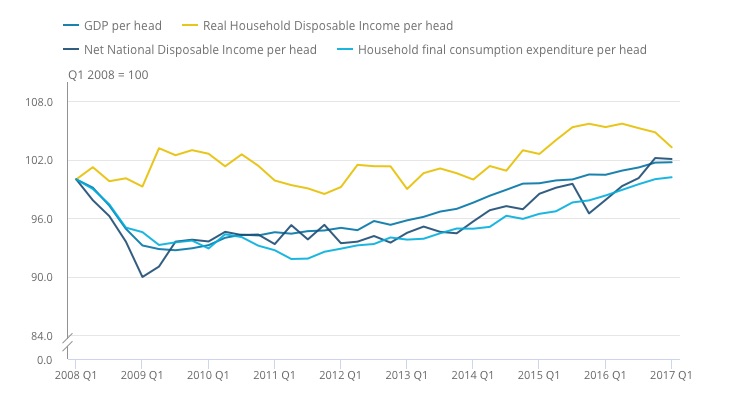Real household income, a key measure of living standards, fell by 2 per cent in the first quarter of 2017.

People’s disposable income dropped by 2 per cent in the first quarter of 2017, new figures by the Office for National Statistics (ONS) showed today.
Despite the British economy growing as a whole (GDP went up by 1.3 per cent to March), the real income of individuals and families is falling.
Higher prices were the main contributing factor to the drop in real income, the ONS’s ‘Economic Well-Being’ report said.
“Britons are getting poorer”, TUC general secretaty Frances O’Grady commented. She added:
“Having just lived through the longest wage squeeze since Victorian times, living standards are in freefall again.”

The ONS figures add evidence to the argument that the British economy is increasingly coming to rely on the creation of low-wage jobs for most of its growth.
“The government cannot sit on its hands and watch this crisis unfold,” O’Grady said, adding:
“The government needs to help create better-paid jobs in the parts of Britain that need them most. And it must lift the unfair pay restrictions on public sector workers.”
A report released today by the Joseph Rowntree Foundation supported the ONS’s figures, showing that living standards for low-wage families are slipping because of inflation and benefit cuts.
Left Foot Forward doesn't have the backing of big business or billionaires. We rely on the kind and generous support of ordinary people like you.
You can support hard-hitting journalism that holds the right to account, provides a forum for debate among progressives, and covers the stories the rest of the media ignore. Donate today.



